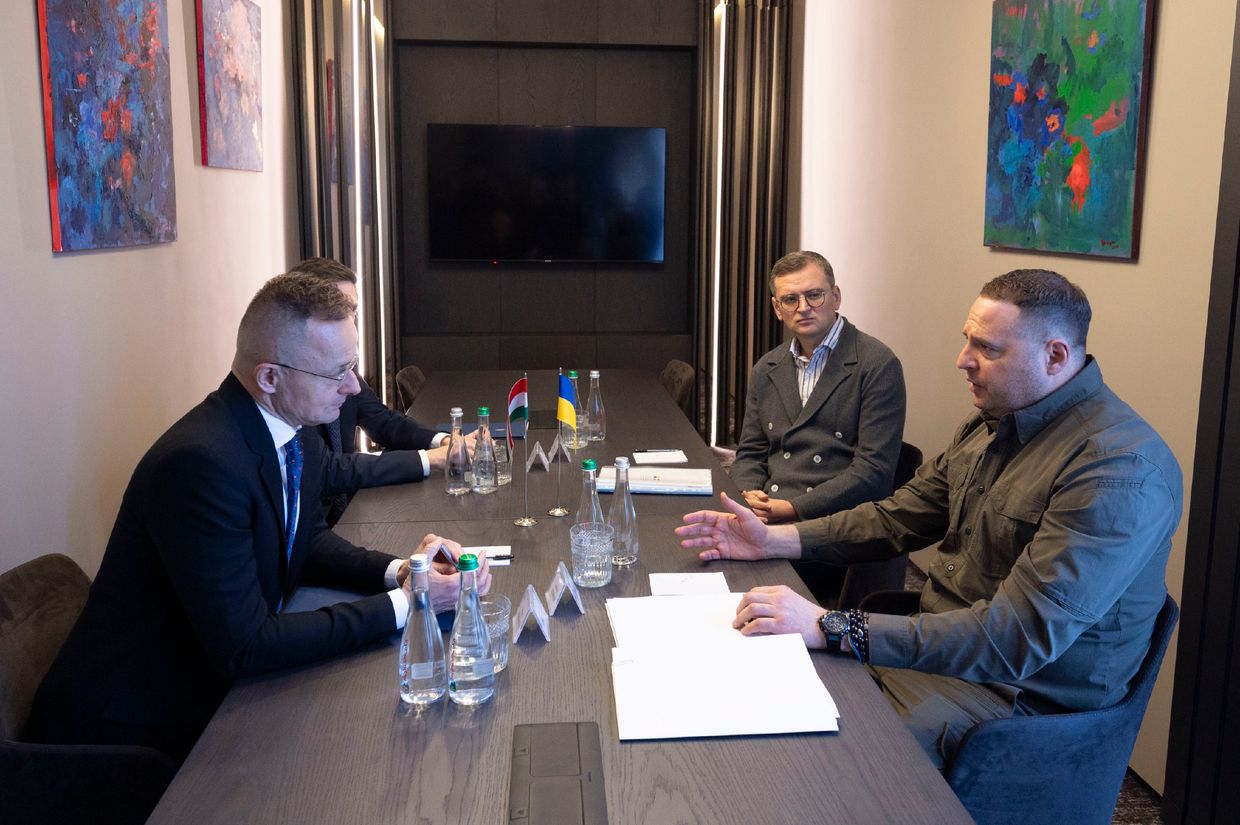Media: Ukraine working with Hungary to unblock EU funding

Ukraine is addressing demands from Hungary to deal with the unresolved issues of Ukraine's national minorities in order to unblock the eighth tranche of the 500 million euros to the European Peace Facility, Ukraine's Foreign Minister Dmytro Kuleba said on April 4.
The European Peace Facility (EPF) was designed to exist apart from the regular EU budget to reimburse member states for military aid they send Ukraine. The fund has been largely depleted as member states have disagreed on the best way to replenish it and unlock further cash for Ukraine.
In response to a question from Ukrainian news outlet European Pravda, Kuleba said at a press conference that Ukraine is working with Hungary to unblock the eighth tranche of the 500 million euros designated for the EPF.
"There is one issue that has been hanging in the air for a long time," Kuleba said. "That is Hungary's blocking of the eighth tranche to the European Peace Facility in the amount of 500 million euros."
Funding to the EPF is provided through tranches that can be blocked by individual member states. Hungary recently refused to approve a 500 million euro replenishment of the EPF fund.
Ukraine is reportedly taking all the necessary steps to unblock the aid.
“There is Ukraine’s response to the 11 points that Hungary conveyed to us in Uzhgorod. We are ready to move, and experts continue to work to resolve these 11 points."
Budapest has repeatedly accused Kyiv of oppressing the rights of Hungarian minorities that live in the western regions of Ukraine, near the border between the two countries. Ukraine's language law, which has long been a source of strife between Hungary and Ukraine, was instituted in 2017 and requires at least 70% of education above fifth grade to be conducted in Ukrainian.

Earlier this year, Kuleba met with his Hungarian counterpart Peter Szijjarto in Uzhhorod in Ukraine's Zakarpattia Oblast. The officials announced an agreement to establish a special commission to deal with the issues of national minorities.
During his first visit to Ukraine since the beginning of the all-out Russia war, Szijjarto said that Budapest had formulated an 11-point request to Ukraine regarding the rights of national minorities.
The list includes the restoration of the status of a national school, the ability to take a high school diploma in Hungarian, and the ability to use Hungarian in public life. Budapest also wants to return the rights its minority had before 2015.
Ukraine has significant Hungarian and Romanian minorities, and both countries have criticized Ukraine's language law as discriminatory. Kyiv responded that it does not intend to crack down on its minorities, only to ensure that every Ukrainian citizen has sufficient knowledge of Ukraine's official language.
In September 2023, the Ukrainian parliament approved changes to national minorities law, which was one of seven steps recommended by the European Commission in June 2022 for Ukraine's potential accession to the European Union. The changes were signed into law by President Volodymyr Zelensky last year.













